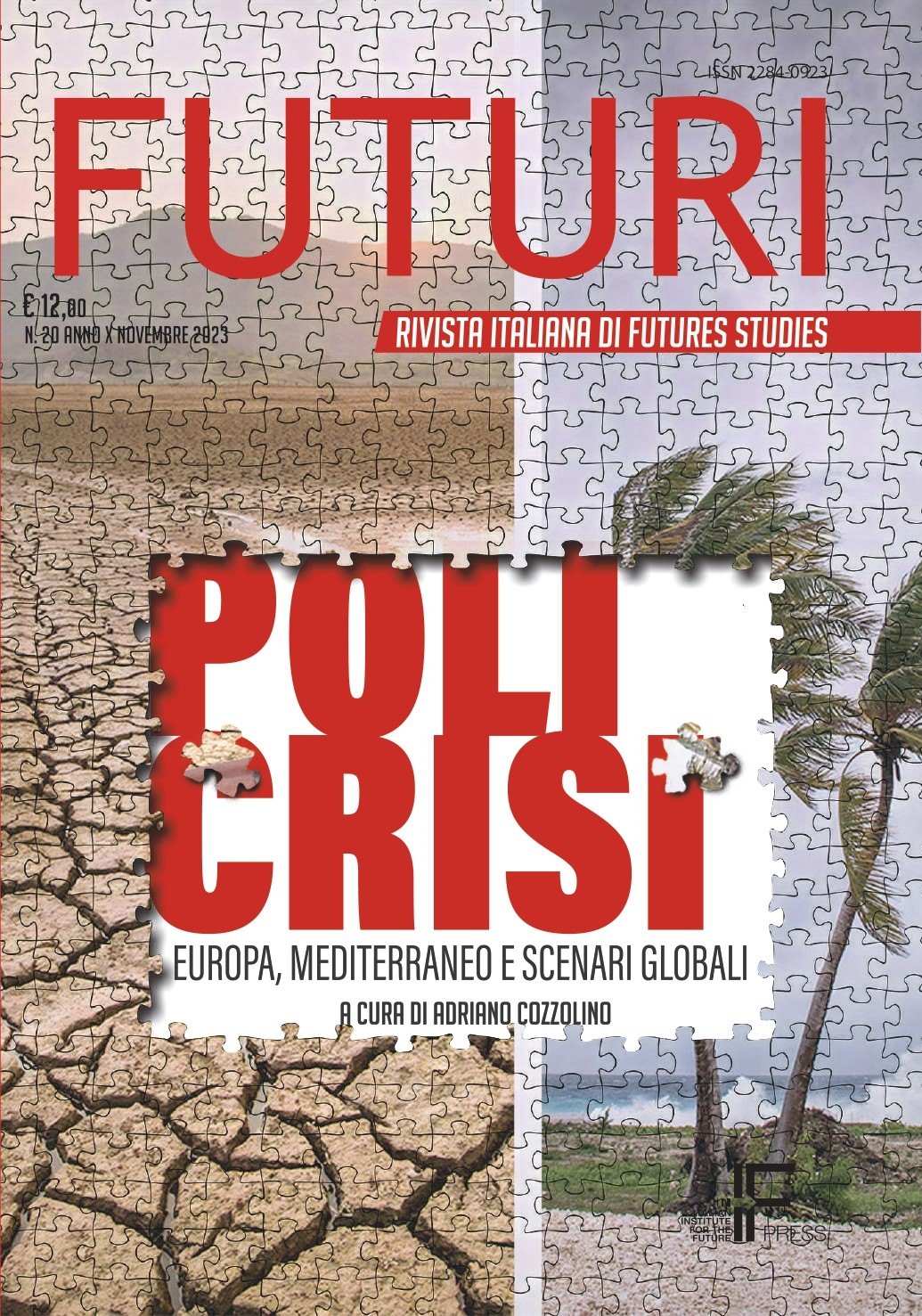Verso democrazie post-rappresentative? Sfide tecnocratiche e contraccolpi populisti in Europa

Published 02-10-2024 — Updated on 23-01-2025
Versions
- 23-01-2025 (2)
- 02-10-2024 (1)
Copyright (c) 2024 Futuri. Rivista italiana di futures studies

This work is licensed under a Creative Commons Attribution-NonCommercial-NoDerivatives 4.0 International License.
Abstract
With the advent of the 21st century, democracies have found themselves exposed to a series of challenges from exogenous crises and radical endogenous changes. The overlapping crises have fueled two toxic sentiments for the smooth functioning of democratic regimes, with the resulting polarizing spillover effects on society: anger and fear, the two psychological and emotional bases crucial to the populist bid (Colomer and Beale 2020). These dynamics have at their center precisely the EU, where the tension between technoburocracy and sovereignisms has taken center stage since the 2008 economic crisis, with populist parties winning government in more than one state, sometimes even expressing the prime minister. In this paper we want to reason about the background conditions of the technocratic and nationalist challenge to democratic representation, convergences with other phenomena such as populism (Valbruzzi 2019), and possible consequences also for the democratic future of the European Union. The analysis will cover the period 2000-2022 and will involve comparative and case studies with reference to some member states and the European Parliament.
